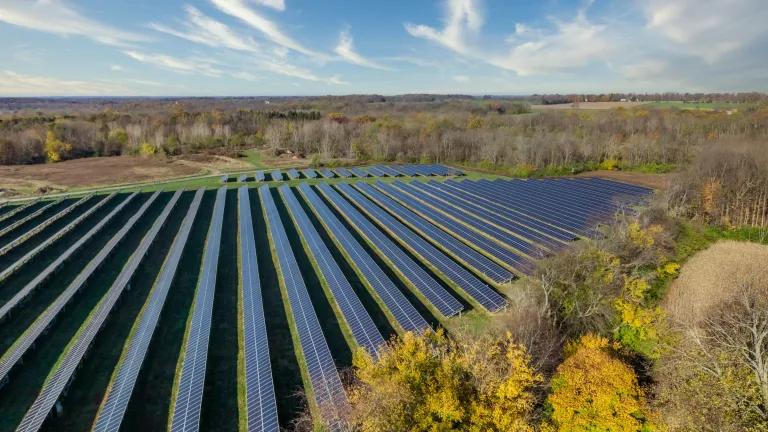This story about an algae growing system being developed by Solix Biofuels and Colorado State is encouraging. It shows that there is at least one other serious entrant into the algae area other than Green Fuels. Algae as a feedstock for making biofuels definitely has the potential to be game changing in that the yield per acre will likely start at about an order of magnitude greater than any other traditional biofuel feedstock.
For instance, biodiesel derived from soybean oil, produces about 60 gallons per acre. Ethanol derived from corn generally produces about 400-450 gallons per acre. Ethanol derived from cellulosic biomass should produce about 1,000-1,500 gallons per acre depending on the yield of tons of biomass per acre and yield of gallons of fuel per ton of biomass. Theoretically, algae has the potential to produce between 10,000 and 200,000 gallons per acre.
However there are some aspects of algae that often get over hyped. For instance, while algae grows better when fed CO2 such as is in power plant exhaust, fundamentally the reduced CO2 emissions come from not burning oil. In terms of the CO2 cycle of the feedstock, algae fed CO2 from a power plant is no different than corn or switchgrass absorbing CO2 out of the air.
Algae is also just a feedstock and still very much dependent on the conversion process and the energy inputs needed at that stage. All detailed forecasts of biofuels based on cellulosic biomass assume that the biomass will also be used to provide the energy to drive the conversion process. It's not clear that there's enough residual material in algae to power the conversion.
Finally, while algae has the potential to produce a lot of biomass on a relatively small amount of land, it is important to realize that it will not provide any of the ecosystem services that even traditional crops provide. It's probably best to think of algae growing like solar power--very much a man made, infrastructure heavy system that sits on top of the land.
One point that I haven't heard hyped as much as I think deserved is that algae is compatible with most of the existing conversion technologies. Between environmental concerns and economic limitations, corn based ethanol will plateau in by the middle of the next decade. Even under optimistic scenarios, cellulosic based ethanol will still be growing slowly in absolute terms. Algae can be bred to produce starch that could go directly into corn ethanol plants allowing all the engineering and capital going into that sector to continue and allowing the industry to continue to grow exponentially.



